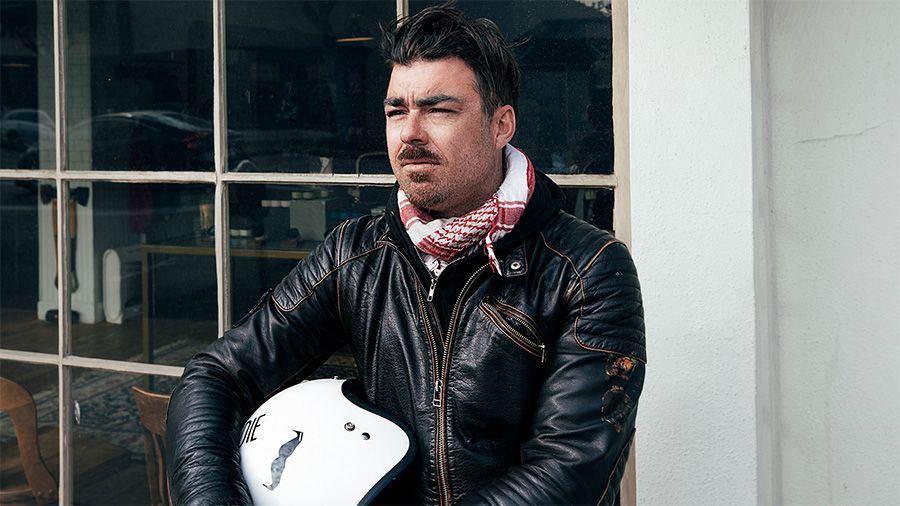

My greatest strength is my softness. It’s something my wife said to me a while ago, probably after crying at the theatre during a moment when the rest of the audience was enjoying a terrific musical number. It’s something that, throughout my life, has led me to seek out the person in the room who was hurting. It’s a quality I’ve always used when helping others, but have rarely used when trying to help myself.
One year ago I moved back to the United States after depression ate me up and threw my marriage into shambles. I developed addictions to whatever I could get my hands on and was trying desperately to “fix” myself by creating a new image for myself. I was effectively doing everything I could to avoid my problems by showing those around me that the problems were gone, when in fact they were only growing larger. This made me feel more and more lost, alone, and like the problems would always be there. I tried to take my own life, twice, trying to simply brush the slate clean with one simple act. It was after my second attempt that I knew big change needed to happen, and that I needed a support network for the change to happen.
I moved in with my brother, began exercising, created routine in a relatively stress free environment, and slowly started to regain some joy in everyday life. And then, I did something radical: at 32, I enlisted in the US Army. I decided that I needed to really take myself out of the driver's seat and see what would happen. Hell, I really had tried everything else. The education, health care, physical and mental stamina I would gain through the process seemed like just what I needed to start to rebuild confidence in myself as a person. Going in, I knew full well I was going to be overwhelmed by the next few years, and I was ready to start growing.
What I didn’t expect was that I would truly discover that my greatest strength, my softness, would be the one I utilized most in training. Sure, grit and toughness were important during basic combat and advanced individual training. As a combat medic, I knew my compassion would drive me to provide better care for my fellow soldiers, but I didn’t expect to find that my softness and caring spirit would do so much in the time between exercises. On multiple occasions, I was the person a soldier would turn to to voice their inner pain, hurt, and fear about where their mental health might be failing, and ultimately what that might drive them to do. And whether it was because I was considerably older, had gone to college, or generally acted like the “old man” in the barracks, these guys thought I would be the best person to talk to. That being said, I know that I’m pretty approachable, and I’m a caring person. Through my own experience, I know that when someone is suffering from depression, just being seen and understood, and having the feelings and thoughts they’re having be understood, is a crucial step towards facing them.
All too often it seemed they had no one else to talk to. Why? Because they really didn’t? Hell no. They meant that they were too embarrassed to talk to anyone else about this. And that’s what I want to change.
" Be soft so others can be strong. "
Too often we aren’t really listening. We aren’t present with a person, yielding to their feelings and emotions, validating their thoughts, and embracing their struggle. Instead, we quickly try to find a solution to their struggle so that we can continue caring about our own problems. We don’t give space and recognition to their pain, and allow them to just sit in it, feeling it fully so they can process it and eventually conquer it. We don’t give that to each other very often, and not enough.
So please, I beg you, try the following with your friends, family, spouse, partner, or roommate:
1. Be patient
2. Don’t try to fix them, because you can’t and that’s not what they’re asking for. Instead, give them the space to feel safe and comfortable enough to open up and begin to process their hurt
3. Be kind (to them and to yourself)
4. Remind them (and yourself) that whatever they are feeling is only temporary and that with time they will pass. Instead of being mad or disappointed, remember that we’re all human, and that we all make mistakes
5. Be open and available
6. This one may be the hardest because it requires us to pause and give space to each other, to take time off the table and just allow a free space for emotion and feelings to take over. And it’s not just for someone else, but for ourselves too. Give yourself the time and space you need to start to unpack some of your feelings so you can begin to heal
There isn’t anything we can do for someone who is gone. We can’t take back what we’ve said, or didn’t say. So start now, to help others, and yourself, to relieve some pressure, to learn to laugh about the pain, and to begin to heal through time. It doesn’t happen all at once, but each day we can have small victories that build to a larger picture where gratitude replaces despondence and we’re excited to grow and thrive in this thing we call life.